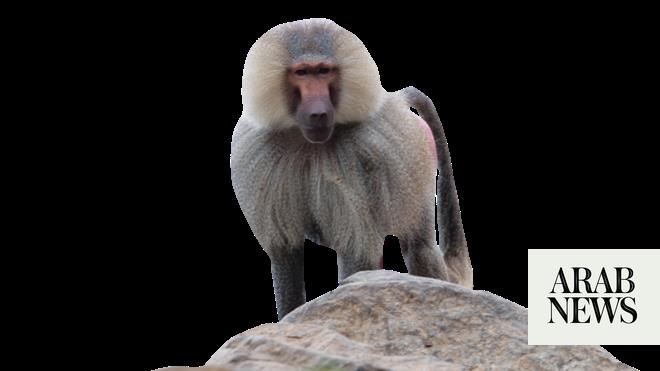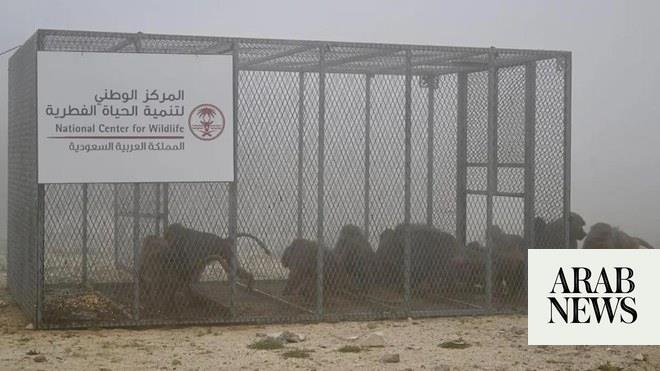
MAKKAH: A Saudi program to remove growing numbers of baboons from urban and agricultural areas aims to prevent animal attacks and environmental damage.
The scheme, organized by the National Center for Wildlife in tandem with governmental authorities and experts from around the world, aims to address growing numbers of baboon attacks and the destruction of farmland in the Kingdom, particularly in the south.
Field surveys were carried out across 504 sites in Saudi Arabia to monitor local baboon numbers, the NCW said.
Solutions were then rolled out, including the installation of more than 300 safety panels, the launch of five national awareness campaigns and the creation of an e-service for reporting incidents.
The NCW has so far responded to more than 2,000 reports via its Fitri platform. HIGH LIGHTS
• Ghazi Al-Yousifi, the owner of an almond farm in southern Taif, said that baboons move in large packs, sometimes up to 60 in number. They pose a direct threat to crops and food products.
• A farm owner in Baha, Hafez Al-Zahrani, said that tourists often feed baboons despite the presence of warning signs. This encourages food aggression.
Maps of vegetation, water and thermal cover of affected areas were also drafted, in addition to disease examinations of baboon samples.
Authorities have so far removed a number of baboon packs from Makkah and several holy sites.
Ghazi Al-Yousifi, the owner of an almond farm in southern Taif, said that baboons move in large packs, sometimes up to 60 in number. They pose a direct threat to crops and food products, he added.
They also threaten the safety of young children who play outdoors, Al-Yousifi said.
The public plays an important role in tackling the issue by stopping the direct and indirect feeding of baboons, which attracts growing numbers of the animals to residential neighborhoods, public roads and other populated areas, the NCW said.
A farm owner in Baha, Hafez Al-Zahrani, said that tourists often feed baboons despite the presence of warning signs. This encourages food aggression, he added, noting that packs of baboons are now known to aggressively approach and enter local residences.
Baboons invade property, steal, attack, climb houses and scatter waste, he added.
In 2023, the NCW will continue its efforts to mitigate and address the problem through sustainable solutions, including studies on baboon breeding.
The efforts aim to limit the damage caused by the animals, especially in tourist destinations across the south and southwest of the Kingdom.












